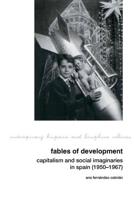Publisher's Synopsis
Sixty years ago the BBC World Service was formed to provide as truthful and informative a counterbalance as possible to the growing influence of propaganda broadcasting from Europe to the colonies. Today it broadcasts in 38 languages to over 120 million listeners, and is probably the best-known and most generally respected broadcasting service in the world.;John Tusa has been the the Managing Director of the World Service since 1986. In this collection of essays and travel pieces, he reflects on the difficulties and rewards of maintaining World Service broadcasting standards through the extraordinary political upheavals of the late 1980s - how the BBC played a vital informing role to communist-ruled countries before, during and after the accelerating collapse of European communism; the effect of World Service broadcasts on hostages in the Middle East, and the new challenges of instant global reporting during the Gulf War. The travel pieces take a look at the love-hate relationship between the World Service and emerging democracies aroung the world. During this time Tusa has also steered the World Service through internal changes to keep pace with development of modern global media systems, culminating in his successful launch of World Service Television in 1991.










